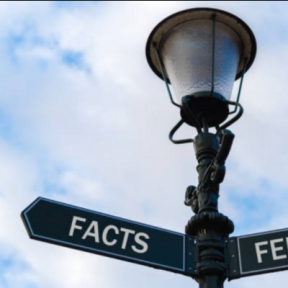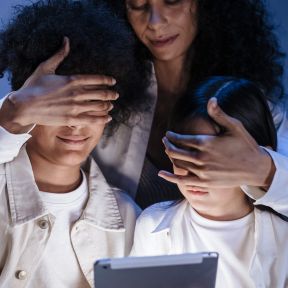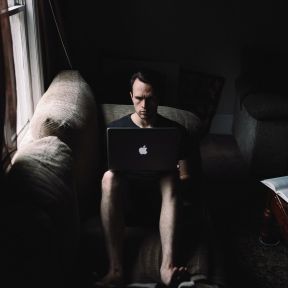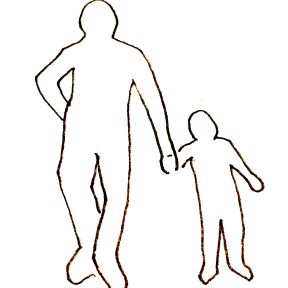
Porn Addiction
Pornography use is a widespread means of dealing with one's sexual drives. More than 90 percent of young men report watching porn videos with some regularity, particularly in the United States. Many of these videos depict acts that they might never engage in themselves—in other words, erotic fantasies.
On Pornhub, the world’s largest porn website, alone, well over 90 billion videos are viewed daily by more than 64 million visitors, 26 percent of them female. Although viewing erotica is nearly ubiquitous among males, some men and women regard watching internet porn as pathological and believe that time spent doing so may be a sign of “porn addiction,” although such a diagnosis is rejected by many psychologists, as are treatment approaches based on addiction models.

Many individuals worry that their own or a partner's use of porn is pathological, but neither porn addiction nor sex addiction is a recognized disorder in the American Psychiatric Association’s Diagnostic and Statistical Manual of Mental Disorders (DSM-5). The World Health Organization’s International Classification of Diseases, however, now includes Compulsive Sexual Behavior Disorder, for which clinicians report that compulsive use of pornography is the leading concern of diagnosed patients. But that guide states that personal distress over sex acts such as porn use based on one's own moral judgments isn’t sufficient to diagnose a disorder. So if someone believes that masturbation to porn is immoral, yet they do it anyway, most clinicians agree that in itself is not a sign of a mental health disorder.
In surveys, virtually all men admit to having used pornography at some point in their lives, and nearly as many acknowledge using it within the last six months. Such results indicate that, whatever critics believe about the dangers or downsides of porn use, for individuals or relationships, those risks may be exaggerated.
The widespread access to and use of pornography among adolescents indicates that it is not at all unusual for a given teen to use porn. However, parents, educators, and psychologists alike have expressed concern about porn serving as de facto sexual education for many young people, because of its unrealistic depictions of sexual activity.
Many researchers doubt porn addiction is a true clinical condition. Instead, some research shows, those who believe they have an addiction to pornography may not use it more than others, but may hold cultural or religious beliefs that make them feel more guilty about it. Other research shows that seeing oneself as a porn addict may be closely correlated to depression, anxiety, and anger.
Experts agree that even if porn use is not a clinical disorder, an individual’s use is a problem if he or she believes it to be one. Surveys find that around four percent of men and one percent of women believe they may be addicted to porn. Some researchers believe therapists should discuss clients’ cultural and religious beliefs, and consider their own, before making any diagnosis based on the use of porn.
Brain monitoring of individuals who believe they have an addiction to porn does not show increased activity in regions of the brain generally activated by addiction when those people view sexually explicit images. Instead, some neuroscientists believe that what may be perceived as an addiction to porn may be a manifestation of depression or obsessive-compulsive disorder.

There is no question that porn use can create distress for individuals or couples. Porn is a common source of conflict in relationships, research finds, primarily when one partner has been hiding their use knowing that the other would disapprove or consider it to be an act of infidelity. Joint counseling can help partners understand each other’s sexual interests and negotiate what is and is not acceptable in their relationship going forward. But it is more likely, many psychologists believe, that disputes about porn use will be found to be driven by other more critical underlying sexual or relationship issues that need to be addressed.
Research finds a correlation between porn use and the likelihood of future breakups, but the effect is not necessarily based on the use of porn itself but whether a partner disapproves of it. Psychologists urge partners to discuss potentially divisive issues like porn use before getting married to avoid potentially devastating disputes in the future.
Many therapists agree that couples’ disputes about porn are generally about deeper issues. A partner may assume the other knows they disapprove of porn use but may never have openly discussed it, or other core values. Or someone may believe porn use is a sign that a partner has withdrawn from the relationship, but that concern tends to be based on an accumulation of signals.
The belief that porn use leads to erectile dysfunction (ED) is generally not accurate. Studies have found that men who reported both frequent porn use and ED were also the subjects most likely to hold the most conservative views about sex and religion; in other words, the distress they felt about their porn use likely influenced their experience of ED.














